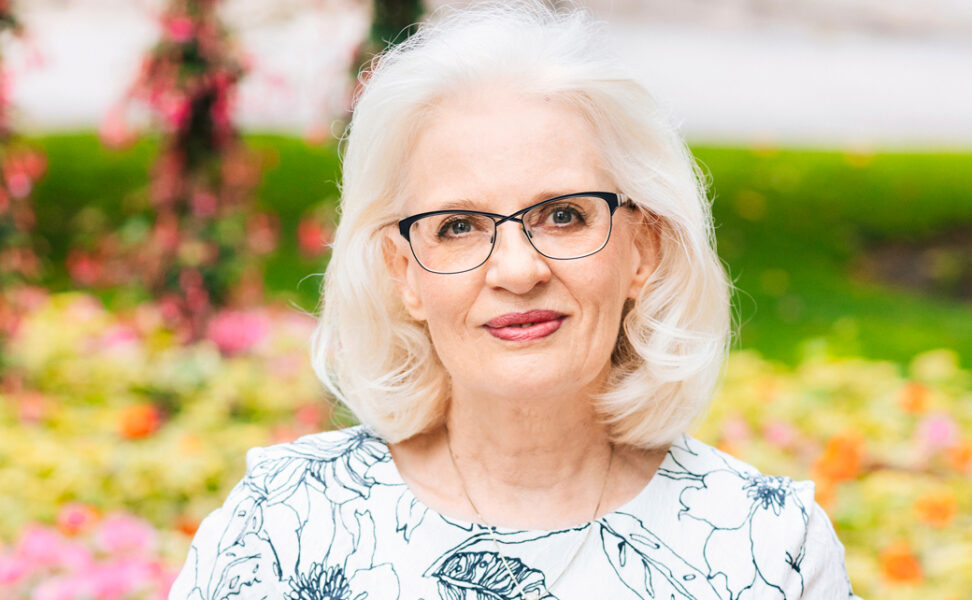
”Time for a quick comment?”
The university builds its brand through the researcher. But are media appearances really part of the researcher’s job?
Text Terhi Hautamäki English translation Marko Saajanaho Photo Petra Antila
Half past three on Friday afternoon, a request arrives from a journalist: Could you take a look at this study and comment for the story? No need to do it tonight, but maybe by noon Saturday?
Such a request has in fact been received by Tuija Saresma. She is a docent and lecturer at the Jyväskylä University, and her expertise is constantly in demand from the media.
“That time I had to tell them ‘No deal’. If you want to write about this study, read it yourself and make your own conclusions”, Saresma says.
Saresma’s experiences with the media have been mainly positive. She researches hate speech, misogyny, racialisation, and racism. She believes giving interviews and participating in discussions on social media is important despite the subjects also generating hateful feedback.
“Even though I think I could not care less about any controversies, I’m quite sure I do care. Sometimes, I’m spending my nights and weekends deleting the worst Twitter comments.”
“Sometimes, I’m spending my nights and weekends deleting the worst Twitter comments.”
Tuija Saresma, docent and lecturer, Jyväskylä University
In her work plan, Saresma has reserved five percent of her working time for participating in social dialogue. Despite this, media appearances seep outside her total number of hours.
“If there is media interest about my subjects, I have the duty to speak. However, these days I am quite careful about agreeing to things.”
The university encourages communication
The universities build their public image through researchers. Liisa Kuvaja, Brand and Communications Director for the Lappeenranta-Lahti University of Technology (LUT) says communication is intended to highlight LUT’s research and researchers alongside LUT as a university. The best way to achieve this is to let the researchers themselves do the talking, which is why communication is encouraged for everyone.
For example, Twitter and LinkedIn training has been organised by Communications, and researchers have been helped to prepare for interviews. According to Kuvaja, LUT does not instruct the researchers on what to say.
“Appreciating and respecting other people drives us, and we do not tolerate any hate speech, discrimination, harassment, or violence. Anything that promotes our goals is very much encouraged. Anything that does not should be considered very carefully.”
“In any organisation, you might want to consider if public criticism of your employer is particularly constructive.”
Liisa Kuvaja, Brand and Communications Director, LUT
And is criticism of the university permitted?
“In any organisation, you might want to consider if public criticism of your employer is particularly constructive. Even the law says employees have a duty of loyalty. That does not mean criticism is not allowed, but any criticism must be fair and appropriate.”
Free speech for researchers?
In August, professor emeritus Jukka Kekkonen wrote in the Journalisti magazine that “positivity” had been set as the unspoken objective of university communication. According to Kekkonen, the communication attempts to ignore critical opinions produced by researchers.
The researchers interviewed by Acatiimi have not experienced any manipulation.
A study by Esa Väliverronen, Professor of Media and Communications at the University of Helsinki, did indicate that a research centre did not want their researchers to bring up certain politically controversial issues. However, he has not encountered this at the university.
Väliverronen notes that university communication has become more active. Some researchers actually want help for communicating their research.
“It has also become more marketing-oriented brand communication, which does not suit all researchers.”
“University communication has become more marketing-oriented brand communication, which does not suit all researchers.”
Esa Väliverronen, Professor of Media and Communication, University of Helsinki
According to Väliverronen, some researchers may be hesitant about the media because they are afraid of people misunderstanding or oversimplifying their topics – or what their colleagues might think.
Väliverronen does not consider media appearances an obligation for every researcher. However, he also finds them rewarding in certain ways.
“When I look at a current issue, that can give me a new angle on my own research.”
Help or restrictions?
World politics lecturer Matti Ylönen from the University of Helsinki is interviewed once a month on average. Ylönen says there is increasing competition for attention in the research world, and pressure towards a certain kind of communication comes primarily from financiers.
“These days, offering specific political solutions is emphasised. Researcher participation is a good thing, but in my opinion the most important effect of social sciences is their wide range of explanatory models about the world.”
Ylönen has no first-hand experience of the university guiding the researchers’ messaging. However, he could see how the public narratives were an internal struggle during the Tampere university fusion.
“I was just an observer of that struggle, but you could see the conflict between the communication goals of the researcher majority and the university management.”
“Researchers can get their message across even without the institution’s official channels.”
Tuija Saresma
Saresma has been satisfied with the help from the University Communications. Communications experts not only edit and publish researchers’ press releases, but also suggest good topics for those releases. They have also offered support in the event of negative feedback for one’s work.
“Of course, Communications also decides what is released widely. But thanks to social media, gatekeepers inevitably start losing their grip. Researchers can get their message across even without the institution’s official channels.”
Social dialogue should be logged in the work plan
Social dialogue is the third specified objective for all universities. According to Finnish Union of University Researchers and Teachers (FUURT) Senior Adviser Maija Mattila, a researcher commenting on their field of research in publich is considered work instead of free time. That is why enough work hours must be allocated for social dialogue.
Ideally, social dialogue should be logged as part of a contract employee’s work plan.
FUURT recommends researchers receive monetary compensation for media appearances and preparation, in addition to travel and allowance costs.
“This is especially crucial for grant-funded researchers, because their grants typically do not cover this kind of activity.”
Offering payment for interviews is not a practice employed by news journalists, as has been widely outlined by many media outlets. Paying certain interviewees could raise suspicions on whether public discourse is being manipulated by buying certain opinions.
Yle pays for radio and television appearances based on the Yhtyneet-sopimus agreement. No fee is paid to any individual commenting on newsworthy matters pertaining to their job or office or appearing on political programming.

